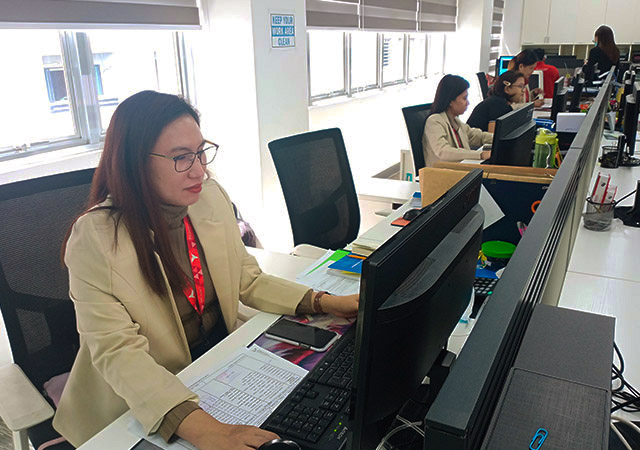Whether you are looking to grow your business and reduce your liability or hit the ground running with a fully incorporated company in the Philippines, your best all-round option is most likely a domestic corporation.
The Philippine government does not offer the traditional Private Limited Company (PLC) or Limited Liability Company (LLC), and has opted for the domestic corporation.
With that in mind, the domestic corporation serves largely the same purpose as a PLC or LLC under the Philippines’ Corporation Code. A domestic corporation takes on its own liabilities and is held responsible for its debts, and its shareholder will only be held liable to the level of their share capital.
In this article, we’ll create a concise overview of the Philippine domestic corporation, covering the basics of its structure:
- Organisational Structure of a Domestic Corporation
- Officer Requirements for a Domestic Corporation
- The Different Types of Domestic Corporation
- Minimum Capital Requirements for a Domestic Corporation
- Tax Responsibilities of a Domestic Corporation
- Required Documents for Applying to Create a Domestic Corporation
- The Steps Required to Register a Domestic Corporation
Organisational Structure of a Domestic Corporation
Similar to what you would expect from a traditional PLC or LLC, a domestic corporation has the following organisational requirements:
- The Articles of Incorporation must include two to 15 incorporators or directors that have formed the corporation. Each incorporator or director must hold at least one capital stock share.
- The majority of the incorporators must be residents of the Philippines; however, they are not required to be citizens of the Philippines.
- In order for a foreign company to legally operate a business in the Philippines, it must appoint one resident agent who shall accept all legal processes, including summons served that emerge from that company’s operations in the Philippines.
Officer Requirements for a Domestic Corporation
A domestic corporation in the Philippines must have at least four officers:
- President — Can be a non-resident but must be a director holding at least one share.
- Treasurer — Required to be a resident of the Philippines.
- Corporate Secretary — Required to be a citizen of the Philippines.
- Compliance Officer — Required to be a resident of the Philippines.
The Different Types of Domestic Corporation
Following the Philippine Foreign Investments Act of 1991, a domestic corporation can have any of the following equity structure:
- A domestic corporation with no foreign equity (100 percent Filipino-owned).
- A domestic corporation with less than 40 percent foreign equity.
- A foreign-owned domestic corporation with more than 40.01 percent foreign equity.
The foreign equity structure is determined by the nationality of the shareholders of the domestic corporation.
While 100 percent Filipino-owned domestic corporations can freely operate in any economic activity or industrial sector, domestic corporations with foreign ownership are restricted from participating in economic activities included in the Philippine Foreign Investments Negative List (FINL).
Related Read: Who can set up a One Person Corporation in the Philippines‘
Minimum Capital Requirements for a Domestic Corporation
| Type of Domestic Corporation | Minimum Capital Requirement |
| 0-40 percent foreign ownership OR exporting at least 60 percent of their products or have at least 60 percent of local ownership | ~US$100 (PHP 5,000) |
| Considered pioneers of Filipino industry, employing at least 50 Filipinos or using advanced technology. | US$100,000 |
| More than 40 percent foreign ownership | US$200,000 |
Tax Responsibilities of a Domestic Corporation
A Filipino domestic corporation will be subject to monthly and/or quarterly value-added tax (VAT) or monthly other-percentage tax (OPT or non-VAT).
The income tax of a domestic corporation is 30 percent, based on its taxable net income.
Other taxes may also apply, such as:
- Documentary stamp tax (DST) on the issuing of new shares or lease agreements
- Withholding taxes on income payments (e.g. 5 percent on rental)
Penalties for not meeting tax responsibilities in the Philippines include:
- 25 percent surcharge
- 20 percent interest
- Penalties of PHP200 to PHP50,000,00
Required Documents for Applying to Set Up a Domestic Corporation
Articles of Incorporation
- The domestic corporation’s name
- Purpose/business type of the domestic corporation
- The names of incorporators and the total number of incorporators (there must be at least two incorporators)
- The total amount and share of stocks of the domestic corporation
Shareholder Information
- Copies of the foreign shareholders’ passports
- Tax Identification Number (TIN) of the local shareholders
- Two valid forms of identification for each of the shareholders
Treasurer’s Affidavit
The Treasurer’s Affidavit shows the Treasurer-in-Trust of the planned domestic corporation has certified at least 25 percent of its authorised capital stock. It must also show that at least 25 percent of the subscription has been paid and received by the Treasurer-in-Trust in cash for the benefit and use of the domestic corporation.
Internal Rules and Bylaws of the Domestic Corporation
The domestic corporation must have written rules of conduct for elections of board directors and officers and general meetings. The bylaws must also include the specific roles and expectations of each of the officers.
The Steps Required to Register a Domestic Corporation
- Register the domestic corporation’s name with the Securities and Exchange Commission (SEC). You will receive a name verification slip. The domestic corporation’s name cannot already be in use or be deemed to be obscene or inappropriate.
- Register the domestic corporation with the appropriate Local Government Unit (LGU) to acquire:
- A Mayor’s Permit form the Mayor’s Office
- Barangay Clearance
- A Business Permit from the Business Permit and Licensing Office (BPLO) of the relevant Municipal/City Hall
- Acquire the Corporate Taxation Registration from the Bureau of Internal Revenue (BIR).
- Register the information of each employee of the domestic corporation to obtain the following for the employees:
- Philippine Health Insurance Corporation (PhilHealth) health insurance
- Home Development Mutual Fund (HDMF or Pag-Ibig Fund) housing loan benefits
- Social insurance from the Social Security System (SSS)
Conclusion — Where to Next for Setting Up Your Domestic Corporation in the Philippines
Although not easy, it is possible to create your domestic corporation in the Philippines yourself. However, we highly recommend you seek the advice of a trusted local incorporation service provider. It will almost always save you time, money, and frustration by delegating the tasks of incorporation to experts.
If you’d like help on establishing your own domestic corporation in the Philippines, we have an expert team of lawyers, accountants, and incorporation specialists who will help you ensure your successful expansion in the Philippines.
If you have any questions about how you can establish your own domestic corporation in the Philippines, please do contact us — it’s both our job and pleasure to help.








